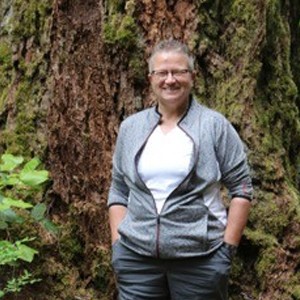
Nycole Harding
Following her extensive experience as an emergency dispatcher, Nycole Harding helped develop and run the 911 and Emergency Services Communications Program at Seneca College. She continues to bring her experience in first response to her teaching at SFU. She currently leads two courses in the First Responders Trauma Prevention and Recovery program: Mental Health Fundamentals and Communication and Helping Skills. We recently caught up with Nycole to chat about the importance of these topics for first responders.
Why did you want to teach in this program? Why do you feel this work is important?
I hold this program near and dear to my heart. I’ve been involved from its start, including helping to develop the courses I’m teaching. I’m passionate about getting the word out that emergency responders matter, and that they are human and need help sometimes too. I believe that many responders would still be around and working their magic with patient care and helping people if this kind of program had been available sooner.
You have over two decades’ experience working within the first responder and mental health fields. How do you bring this knowledge and experience into your teaching?
I started my career as a paramedic and emergency medical dispatcher. At the time, there were minimal resources and avenues through which responders could share that they weren’t OK. I was also a female in very much a man’s world and occupation. I’ve lived through various workplace issues and challenges, which I now share with my students—including what happened, how I overcame my own demons and the strategies that worked for me.
Who do you think would benefit from the program?
I believe anyone who deals with some form of trauma being experienced by others can gain from this program. That includes not only frontline firefighters, police officers and paramedics, but also emergency communicators, social workers, funeral service personnel, hospital staff…I could go on and on.
What can students expect from your Communication and Helping Skills course? How do you approach sensitive topics covered in the course?
The course covers various aspects of crisis communications. I’m always upfront with students about sensitive topics, assuring them that it’s OK to not participate in discussions that are too close to home. But I do ask that they let me know in advance so I can refer them to someone they can connect and chat with. Sometimes that could be me.
What do you think is the most valuable skill or concept students will learn in your Communication and Helping Skills course?
How to communicate and really listen. We all love to talk and share ideas but some of us are very poor listeners and love to fill the void when there’s silence. In a crisis situation, the listener should not be doing all the talking—even when the other person is not saying a word. You should be able to just sit and be with someone. When you do speak, make sure your words are right for the situation, the crisis and the people involved.
How can this course help first responders in their work and personal life?
Good communication skills are like common sense and knowing what to say at the right time is a super power. We need to practice this super power and hone those skills for our work and our personal lives. For example, knowing what to say at home after a bad call without alienating or traumatizing your loved ones. And knowing what to say to a colleague after a bad call. Communication skills are what keeps families together, both at work and at home.

